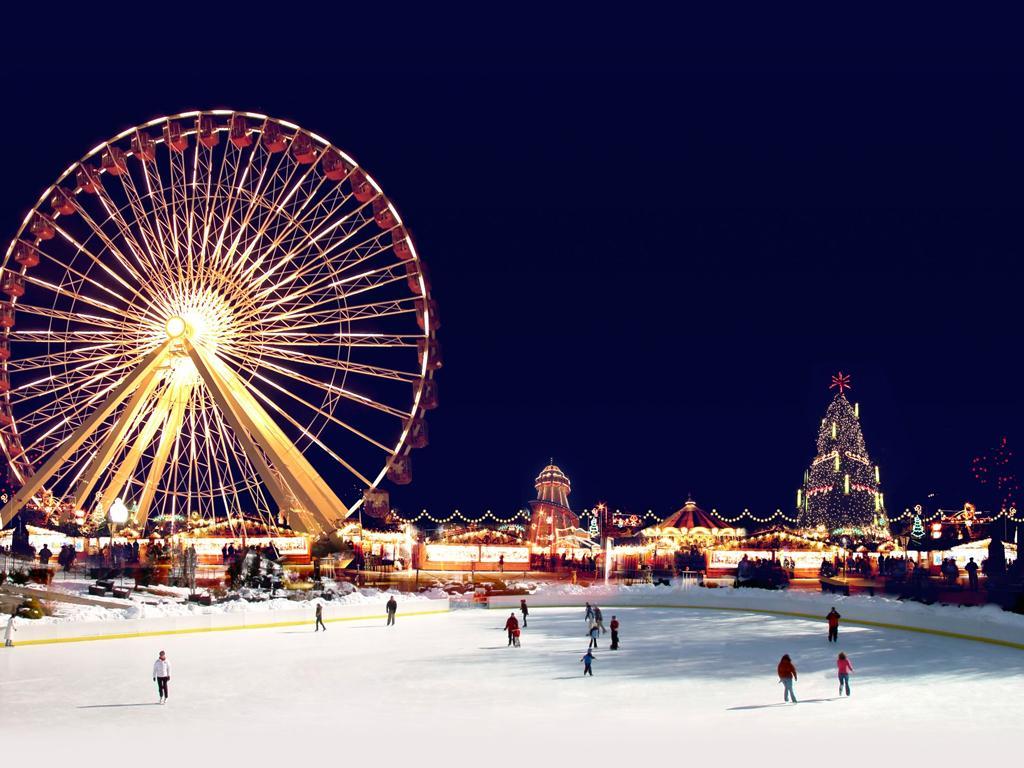Yiwu Christmas Village: The Chinese city making the world's decorations
Yiwu Christmas Village fires on all cylinders for months each year

Your support helps us to tell the story
From reproductive rights to climate change to Big Tech, The Independent is on the ground when the story is developing. Whether it's investigating the financials of Elon Musk's pro-Trump PAC or producing our latest documentary, 'The A Word', which shines a light on the American women fighting for reproductive rights, we know how important it is to parse out the facts from the messaging.
At such a critical moment in US history, we need reporters on the ground. Your donation allows us to keep sending journalists to speak to both sides of the story.
The Independent is trusted by Americans across the entire political spectrum. And unlike many other quality news outlets, we choose not to lock Americans out of our reporting and analysis with paywalls. We believe quality journalism should be available to everyone, paid for by those who can afford it.
Your support makes all the difference.Would it bother you if you found out the baubles on your Christmas tree were made in Yiwu Christmas Village? Probably not. The innocuous-sounding name conjures images of merry elfin workers, skipping about an assembly line festooned with tinsel beneath the benevolent gaze of a portly, bearded supervisor.
But the Christmas Village on the outskirts of the Chinese metropolis of Yiwu is just one anonymous manufacturing district amongst countless others. According to the United Nations, Yiwu is the “largest market of petty commodity wholesales in the world”. Artificial flowers, gimcrack toys and synthetic sportswear are all produced here in mind-numbing volume, and Christmas is just one more “petty commodity” amongst the rest.
60 per cent of all Christmas decorations sold worldwide are made in one of the 600 factories in the Christmas Village, often hand-manufactured by workers who have only a vague understanding of what the festival is supposed to represent. None of the workers make more than a pound an hour, with average wages hovering somewhere between £200 and £300 for a month of gruelling, 12-hour shifts.
Yiwu Christmas Village fires on all cylinders for months each year, churning out endless rivers of tinsel and galaxies of spray-painted Christmas stars. Workers start injection-moulding, stitching and spray-painting when it is still the height of summer. It might not occur to the average shopper to snap up some cut-price fairy-lights in August, but the Christmas Village is not catering to the private market.
Rather, the merchandise produced here makes it way to the jaw-droppingly huge China Commodity City. The “the world’s largest wholesale market” covers 4 million square metres. 62,000 booths jostle for trade here, all an identical shape and size. It is tempting to describe this booming commercial dystopia as Yiwu’s heart of darkness, but China Commodity City gleams with artificial light and the primary-coloured sheen of global capitalism.
Outside the hypermarket’s perimeter (which takes an hour to circumnavigate by bus), hustlers on motorbikes push counterfeit currency and bogus iPhones. But inside, there are no Abibas trainers or Appel computers in sight. China Commodity City does not sell fake, high-end products: its trade is in wholesale, low-end, legitimate crap. This is a shopping mall for shopping malls to shop at, where commercial bulk-buyers come to haggle over wholesale deals.
You can wander down hallway after hallway and see nothing but pound-shop tat. Indistinguishable LED signs wink endlessly in the corner of one hangar: another sector sells nothing but pens: a third teems with rubber duckies and cheaply-moulded plastic toys. Everything is disposable, low-end, garish. The Christmas decorations are corralled into one festive enclave, where salesmen pore over racks upon racks of Santa hats. (It’s in District 2, if you were thinking of visiting.)
Yiwu has a long history of trade: the area lacks rich, fertile soil, so locals have long been accustomed to selling manufactured wares to buy food. Once the Chinese government permitted trade to be re-established during the 1980s, the city was the first in Zhejiang province to open a market. It has never looked back.
Just as Yiwu is the ideal home for China Commodity City, so China Commodity City is the ideal home for the vast, twinkling output of Yiwu Christmas Village. In the UK alone, we spend over £2billion a year on Christmas decorations, while our American cousins shell out somewhere north of £11billion on tinsel, fairy-lights and the like.
Then, almost as the clock strikes 00:01 on Boxing Day, we in the UK sweep a billion Christmas cards into the bin, along with enough wrapping paper to stretch to the moon. For as long as we keep chucking our novelty, saxophone-playing Santa Clauses into the bin once the batteries wear out and abandoning our glittery Santa hats in the street as we career home from the work Christmas do, Yiwu’s factories will keep cranking them out. Just something to think about as you jettison your malfunctioning Christmas lights and head cursing off to Poundland for the ninth year in a row.
Join our commenting forum
Join thought-provoking conversations, follow other Independent readers and see their replies
Comments